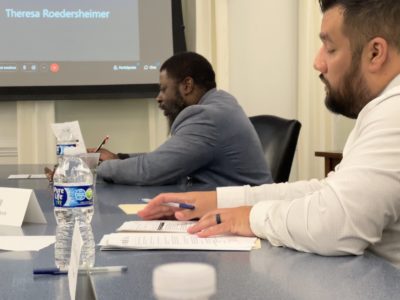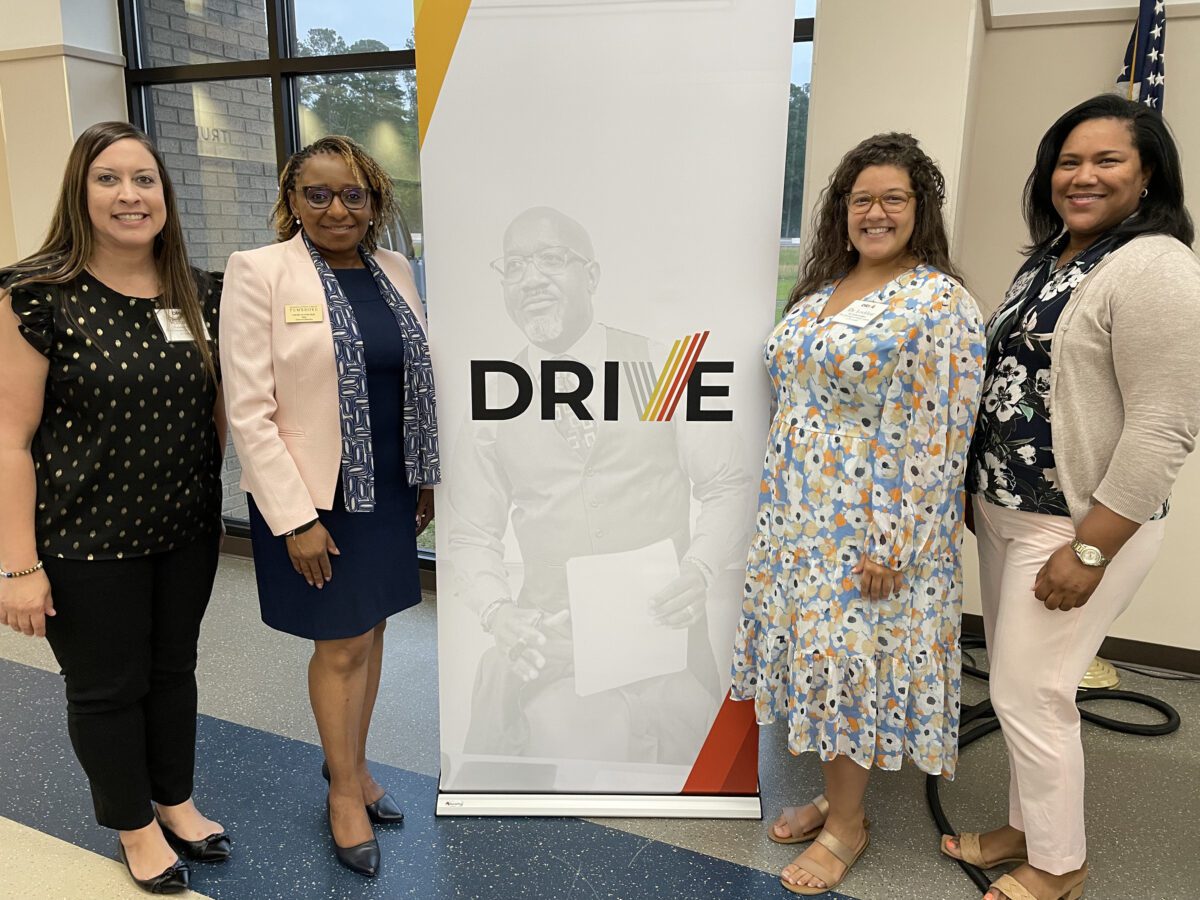

|
|
The DRIVE Task Force tour continues, having completed its second of four stops in Robeson County earlier this month. Across the state, the governor’s office, in conjunction with the Hunt Institute, is gathering stakeholders and exploring practices to recruit and retain educators of color.
The two-part tour stop consisted of an educator networking event at Robeson Community College, followed by a convening at UNC Pembroke to hear task force subcommittee reports and presentations about organizations and initiatives that are impacting the teacher of color pipeline.
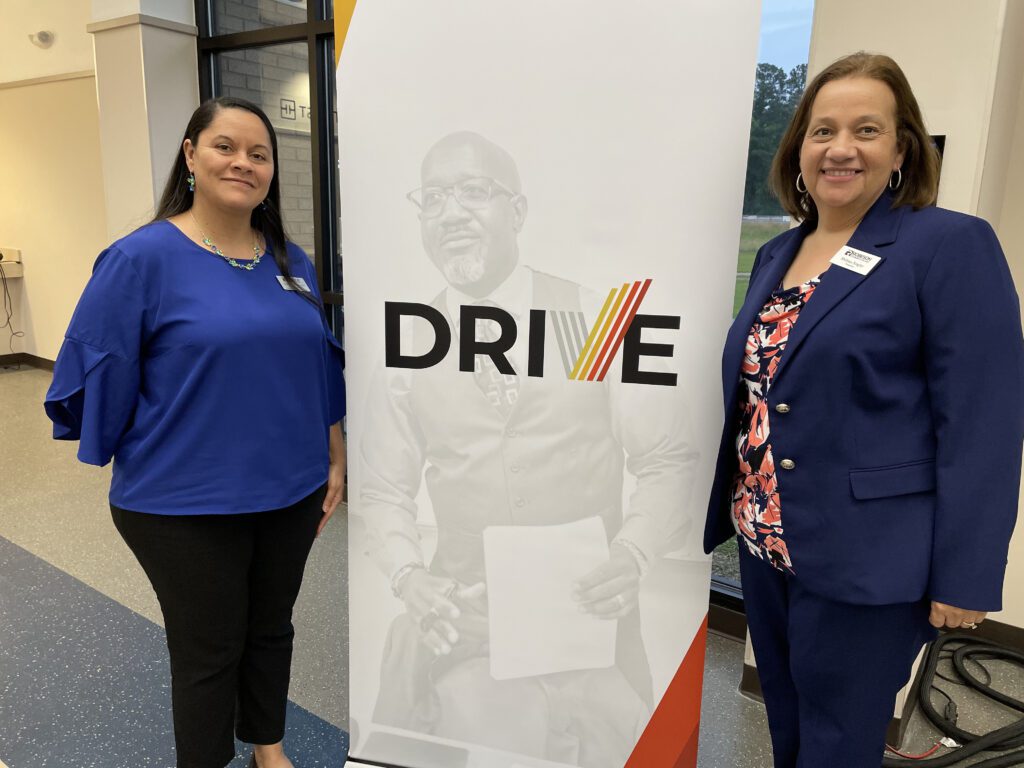

Overview of the task force
DRIVE stands for Develop a Representative and Inclusive Vision for Education. In 2019, Gov. Roy Cooper signed an executive order to establish a task force, consisting of parental guardians, educators, state and local government officials, and representatives of both UNC and community colleges networks.
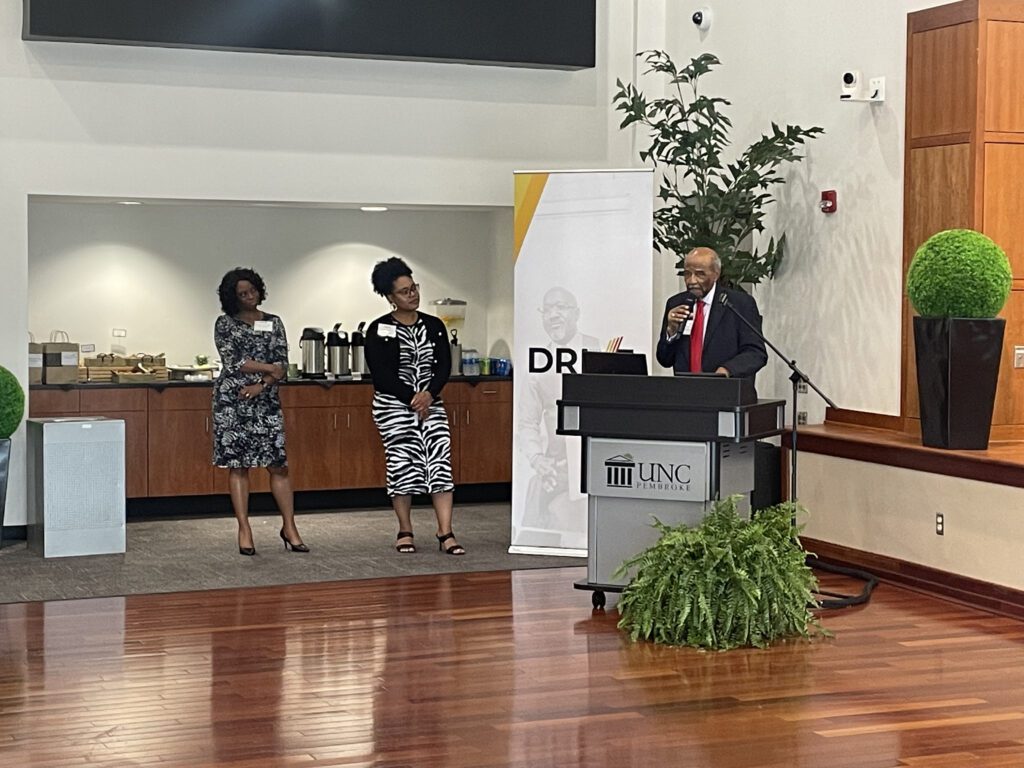

Since its inception, the task force’s progression has included two summits, and the presentation of a final report that offers an analysis of the state’s racial and ethnic diversity in education, in addition to recommendations and strategies to address the target area. The four-stop tour is set to supplement the report by garnering specific organizations and programs that directly align with the task force objectives.
With the task force scheduled to conclude at the end of 2023, the succession sub-committee has been tasked with identifying how the work will continue beyond this year. At the previous DRIVE tour stop in Edgecombe, the Dudley Flood Center for Educational Equity & Opportunity was recommend to be the governing organization responsible for housing and maintaining the moment.
While consideration is still open, The Flood Center was recognized as a primary option given its alignment with the objectives of the task force. At the UNC Pembroke convening, Flood Center leaders Dr. Deanna Townsend, Ashley Kazouh, and Dr. Dudley Flood provided a detailed presentation of the Flood Center’s history, programming, and network, including the Jeanes Fellows, Rural Teacher Leader Network, and the annual Color of Education Summit.
The final succession decision is to be determined at the final convening approach at the end of the year.
Leveraging resources and “grow your own”
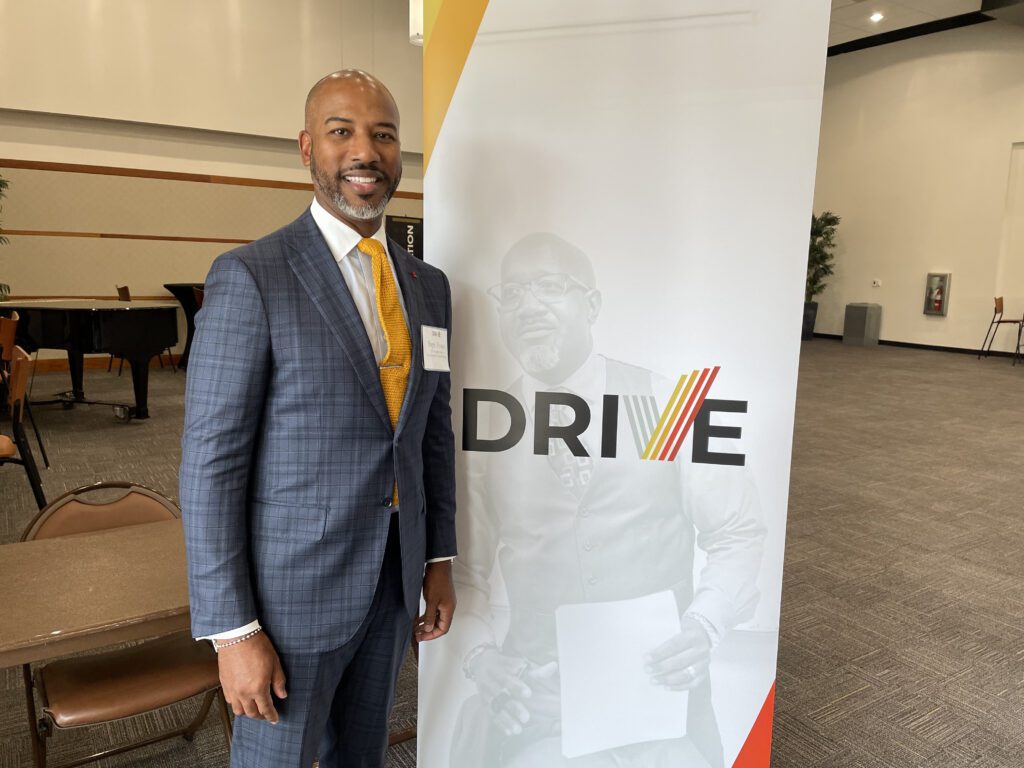

Dr. Charles Foust, superintendent of New Hanover County Schools, spoke about the district’s effort to build an inclusive education workforce.
A significant component of his remarks centered on leveraging financial resources to target recruitment of men in education and also increasing scholarship opportunities for students to access education pathways at community colleges and universities.
Additionally, Foust talked about the district’s partnership with the chamber of commerce to establish a CTE leadership program. Through the collaboration, students are exposed to different areas of workforce, including various pathways within education that extend beyond teaching.
Regarding presenting education as a career option, Foust expressed that his district has been engaging students early, stating that “we have to start at the elementary level,” and encouraging educators to “show them how they love it.”
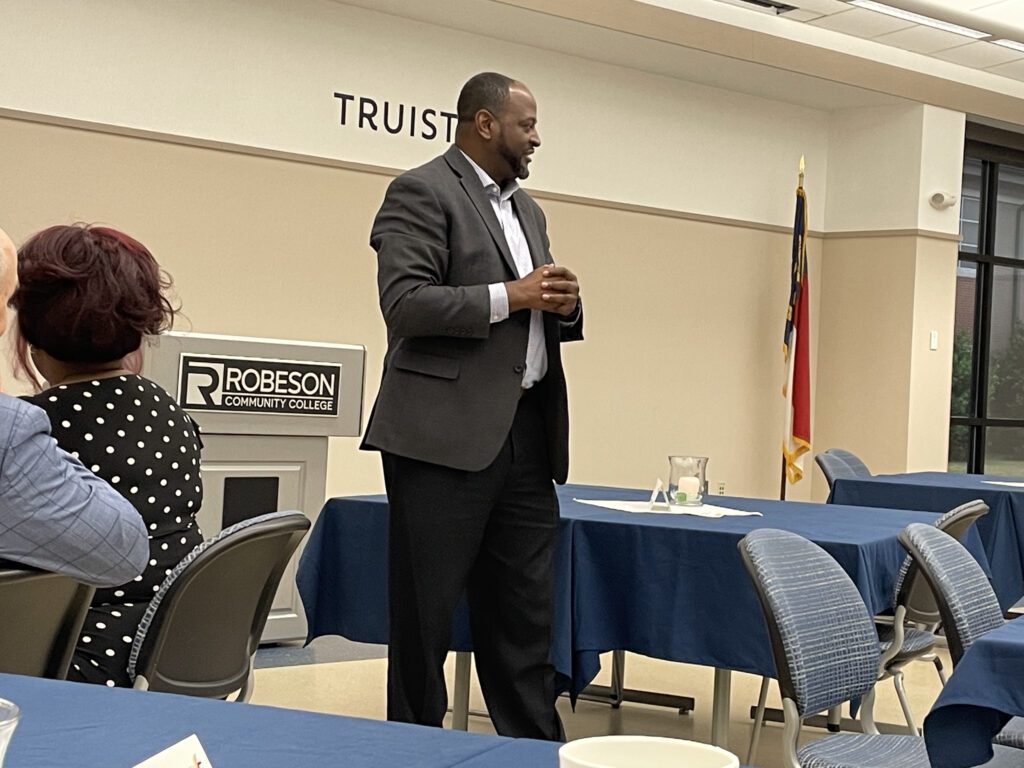

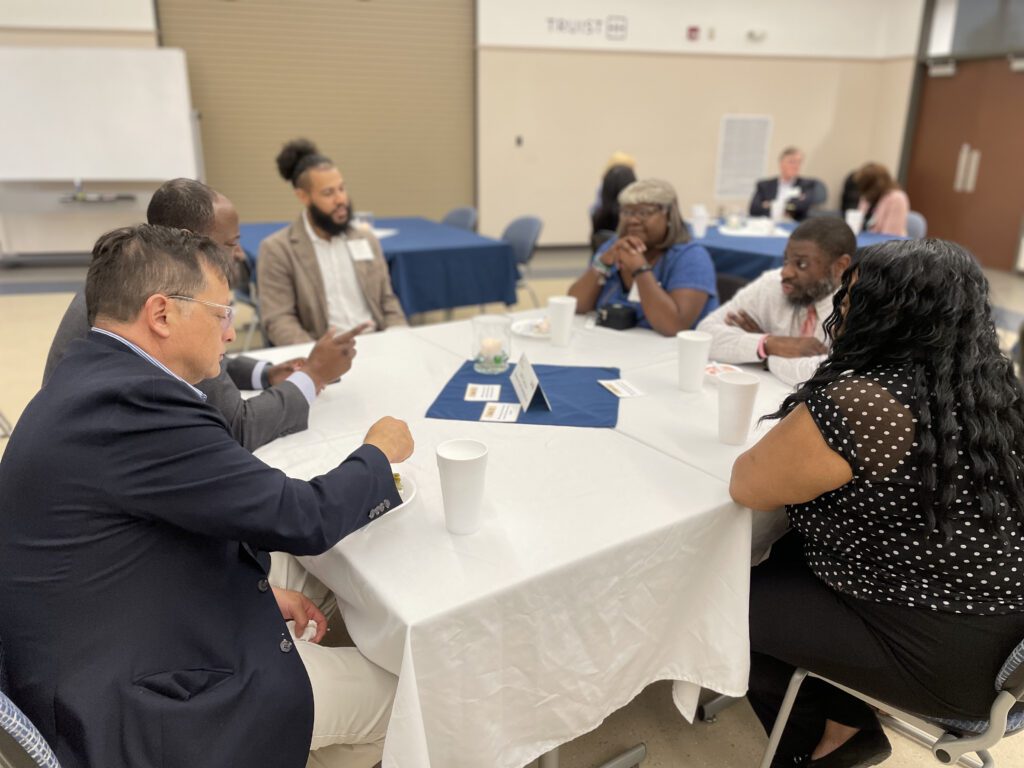

Dr. Mary Olvera is an education program administrator for the North Carolina Community College System (NCCCS). During her presentation, she shared several pathways supported by the NCCCS to address the development of the teacher pipeline. According to Olvera, increasing accessibility is what supports creating equity, ultimately offering multiple points of opportunity to students to enter the education workforce.
Some of the programs and systems mentioned included community colleges:
- Offering teacher preparation degrees.
- Partnering with high schools through College and Career Promise.
- Partnering with 4-year colleges and universities.
Olvera also referenced the NC Educator Pipeline Collaborative, a partnership between the Public School Forum, NC Office of the Governor, The Belk Foundation, and John M. Belk Endowment. In 2022, the collaboration established eight teacher preparation school districts, universities, and community colleges centered on expanding and diversifying the education workforce.
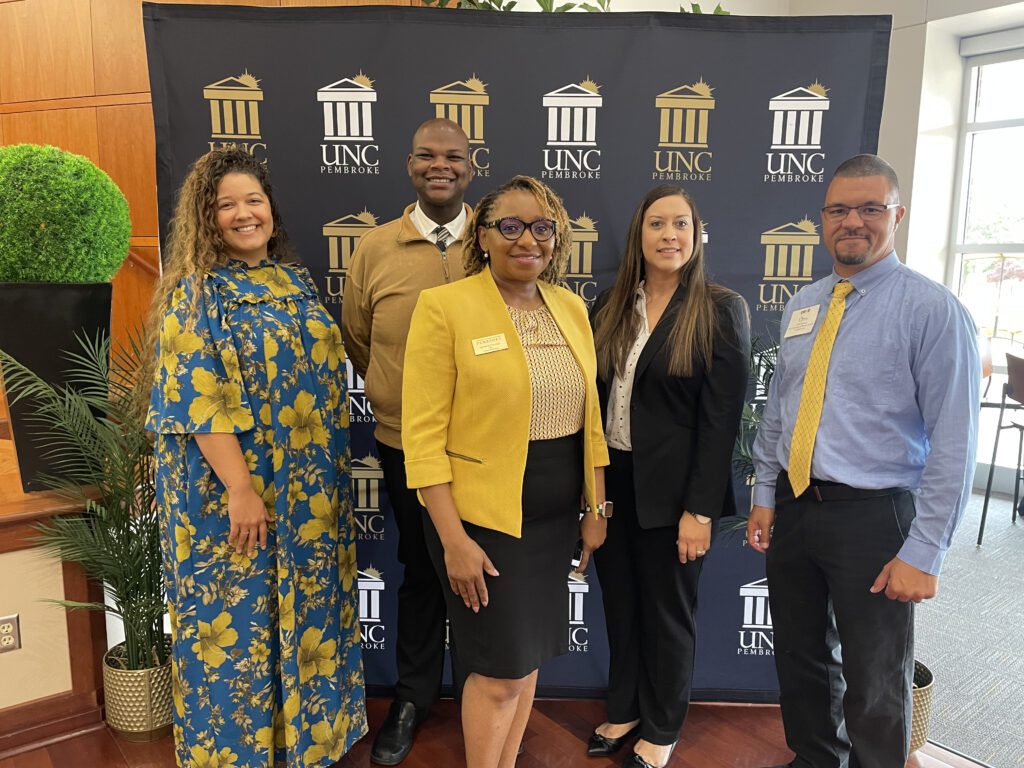

As a part of the presentation, attendees heard about the following opportunities offered by UNC Pembroke’s School of Education:
- Brave Scholars Program: This program is a needs-based scholarship as a result of the university’s partnership with Columbus County Schools, Public Schools of Robeson County, Scotland County Schools, and Whiteville City Schools. In exchange for the commitment to service in one of the partnering districts, participants receive support along their journey to becoming an elementary or special education teacher.
- TA to Teacher Pathway: Under the university’s education preparation program, this pathway is specifically designed for teacher assistants with an Associates of Art or Associates of Science degree to be a part of a cohort in earning a Bachelors of Science in Elementary Education.
- NC Teaching Fellows: In 2021, the university’s School of Education submitted a proposal to be reinstated as a part of the NC Teaching Fellows program. Five students were welcomed as a part of the first cohort in 2022. The incoming cohort of 19 is stated to have “increased the representation of minorities by 30%” in the program. Another significant feature was the university’s ability to hire a director, Dr. Diana P. Dubisky, specifically for the teaching fellows.
- First Americans Teacher Education (FATE): The program aims to “increase highly qualified American Indian teachers who will teach in schools with significant American Indian student populations.” Through the Office of Indian Education, the grant allows full support, whether financial, academic, or professional, both during and after their time pursuing an undergraduate degree.
Once they’re here, keeping them
A focal point of the task force is addressing how to keep teachers once they have been recruited. Two organizations were present whose missions are directly focused on retaining educators of color.


Profound Ladies is committed to the retention of female teachers of color. Founded by Keiyonna Dubashi in 2020, the organization provides mentorship, training, leadership, and career development pathways to the educators so that they may thrive and continue to interrupt inequitable outcomes for all students.
In her presentation, Dubashi acknowledged that the low representation of educators of color didn’t occur by happenstance. She pointed to the duality of the May 17 anniversary of Brown v. Board of Education recognized by the Dudley Flood Center, highlighting both success in the fight for desegregation, and the simultaneous lasting impact of the displacement of people of color in the field of education as a result.
As a veteran educator who always dreamed of being a teacher, Dushashi’s focus is to advocate for compensation, work environments, and lifestyle supports that help educators of color stay in the classroom.
Moreover, she’s committed to taking care of “those teachers who have signed up regardless.”
“We’re putting a lot of shiny new tools in front of our teachers to bring them to the profession, but we’re forgetting about the people who would be there if you didn’t give them a dime,” she said.
Districts mutually aligned with this cause are the districts that Dubashi said she is seeking to expand partnerships with.
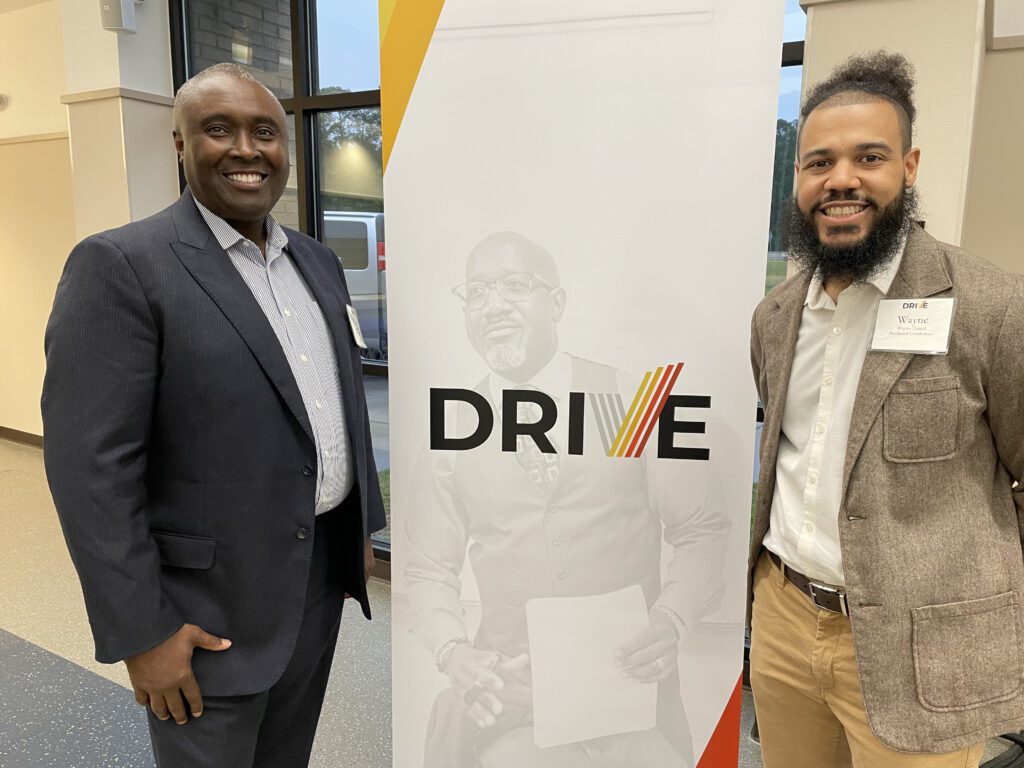

Profound Gentlemen is set out to continue building “a community of male educators of color who provide a profound additional impact on boys of color.” Their efforts target the disparity of the representation of males of color in the field of education.
According to their senior impact director, Wayne Terrell, their primary focus is retention as well, using strategies like 1:1 coaching, professional development workshops, and an extensive network for gentlemen to access.
Looking ahead, as Profound Gentlemen expands their partnerships, Terrell shares that they are deepening their research so that they may continue to target the specific needs of their gentlemen.
When speaking of their aligned focus with the DRIVE Task Force, he stated that “This work takes community.” Given that given multiple organizations are working toward the same goal, he continued, “We cannot work in silos.”
“It’s important for us to create a coalition as we do this work together as much as we can,” he said, “because bridging that gap is how we’ll be able to continue moving forward.”
Future convenings
Click here to register for the remaining DRIVE Task Force Tour stops.
The last two dates and locations are:
- Sept. 21-22 in Cullowhee
- Nov. 16-17 in Winston-Salem





